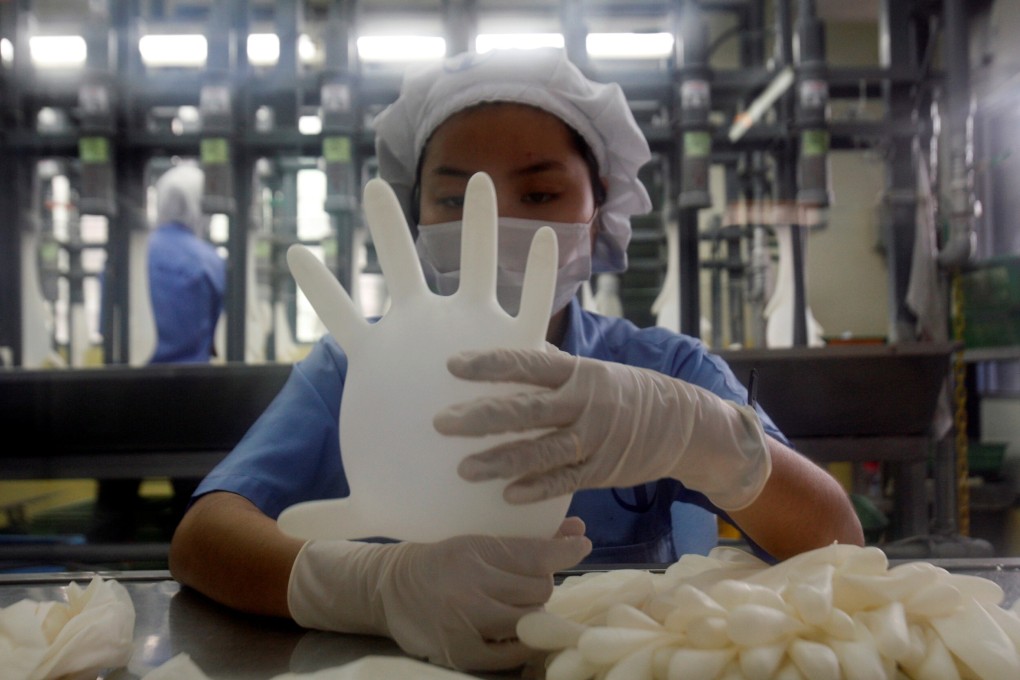Coronavirus boom for Malaysia’s rubber glove industry loses shine amid worker rights abuses
- The pandemic has sent demand for rubber gloves rocketing, giving a boon to both firms such as Top Glove and the wider Malaysian economy
- But as investors point the finger over workers’ living conditions, experts say action is needed to keep ahead of competitors in China and Southeast Asia

The glove maker’s success has therefore raised their importance to a nation navigating an economic slump brought on by the pandemic and its accompanying lockdowns. In 2020, the Malaysian economy contracted 4.5 per cent.

Matters were made worse when a coronavirus outbreak at one of the firm’s manufacturing complexes last year infected more than 5,000 foreign workers, killing one. Top Glove responded by dismissing a whistle-blower who revealed that social distancing measures were not being implemented, prompting the US investor BlackRock, Top Glove’s tenth biggest shareholder with 1.07 per cent of its shares, to call for the removal of its board of directors. While another investor, a Norwegian sovereign wealth fund, also voted against the board, it was re-elected. Top Glove has also faced fire from the Malaysian government. Human Resources Minister M Saravanan, who initially defended the corporation, had a change of heart after touring its worker accommodation, describing the conditions as a “matter of life and death of vulnerable workers”.
